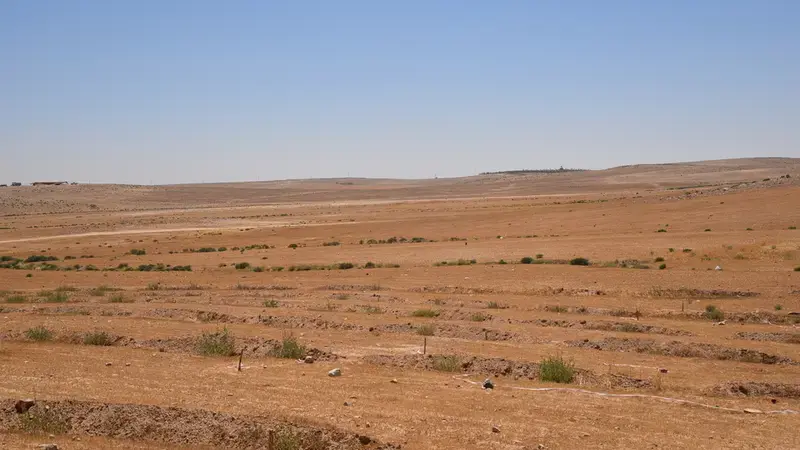Enhancing food security by preserving genetic resources

On World Day to Combat Desertification and Drought, we reflect on ICARDA’s genetic resources and safeguarding activities for sustainable development in the world’s dry areas.
Drylands cover over 40% of the planet’s land surface and span 100 developing countries with a growing population of more than 2.5 billion people. Although farmers in drylands are major crop producers and half of the world’s livestock is kept here, people are living in chronic poverty and face challenges highly impacted by climate change. Scarce water resources, erratic precipitation, drought, salinization, land degradation, loss of traditional knowledge, unemployment, malnutrition and poor diets are new phenomena people in dry areas have to cope with.
ICARDA holds in trust one of the world’s largest and most unique collection of landraces and wild relatives with a total of 154,000 different samples of major winter cereals, food legumes, forage and rangeland species from the ‘Fertile Crescent’ in Western Asia, the Abyssinian highlands in Ethiopia, and the Nile Valley, where earliest known crop domestication practices were first recorded. Many plants are now extinct in their natural habitats.

Marchouch Research Station in Rabat, Morocco. Photo credit: Chandrashekhar Biradar
The Center’s first global genebank was launched in 1983 in Syria. In 2012, as the situation in Syria deteriorated, ICARDA strategically relocated its genebank activities to Lebanon and Morocco, as part of its decentralization initiative. Simultaneously, scientists stepped up duplicating accessions for safekeeping in Svalbard, Norway and other genebanks.
In 2015, ICARDA became the first organization to withdraw seeds from the Svalbard Vault as a response to the fact that although 141,000 accessions constituting active genebank in war-torn Aleppo were stored safely, they could no longer be regenerated or distributed to breeders and researchers. The seeds retrieved from Svalbard were planted for multiplication and reconstitution of the collections to set up active genebanks in Lebanon and Morocco. These collections enabled ICARDA to share precious seeds with research organizations and breeders worldwide, bringing the global community to a food secure world.
“ICARDA’s ancient varieties have survived for thousands of years through adaptation and evolution,” commented the Center’s Director General Mr. Aly Abousabaa. “They offer a huge potential to find solutions to the ever-increasing challenges in dry areas where depletion of soil and water resources are an imminent threat to productivity, livelihoods and food security.”
“Given the adverse impacts of climate change, our genetic resources are becoming crucial for developing crops for users’ nutritional needs in the future. On International Day to Combat Desertification and Drought, we highlight this significant achievement and continue to offer the support that countries, communities and farmers need to raise their productivity against a backdrop of rapid climate change.”
Annually, ICARDA Genetic Resources Section distributes 20,000 seed samples on average. In 2016, more than 12,500 samples were distributed from Lebanon and Morocco genebanks for the first time.
